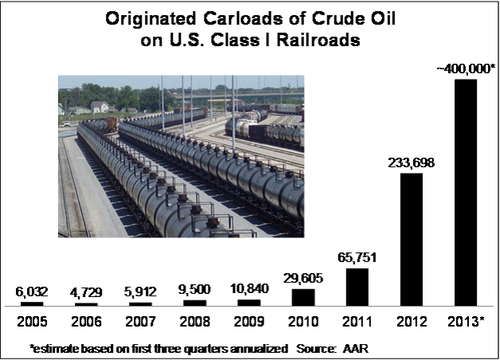An excellent discussion of externalities associated with rail transport of oil
Meridith Fowlie, writing for the Energy Institute at UC Berkeley’s Haas School of Business, lays out the economic case for better data collection and policy changes to internalize the externalities of rail transport. Here are a few key intro paragraphs:
Railways and the problem of social cost
Almost a century ago, trains throwing sparks into neighboring fields and forests helped ignite a canonical debate in economics. These railroad sparks sometimes set fire to farms and woodlands. Writing in 1920, Alfred Pigou observed that if the railroads fail to account for these damages, profit maximizing operating decisions would not be socially optimal. He proposed taxation as a means of aligning private and social interests.
In 1960, Ronald Coase revisited this example in a famous paper titled The Problem of Social Cost. He observed that if property rights are well defined and costless to enforce, private bargaining between railroads and landowners should result in a socially efficient outcome. (Interested readers should see Severin’s post celebrating Coase’s influential insights).
Current debates about transporting oil by rail bring us back to the question of how to internalize this canonical social cost.

keywords:
